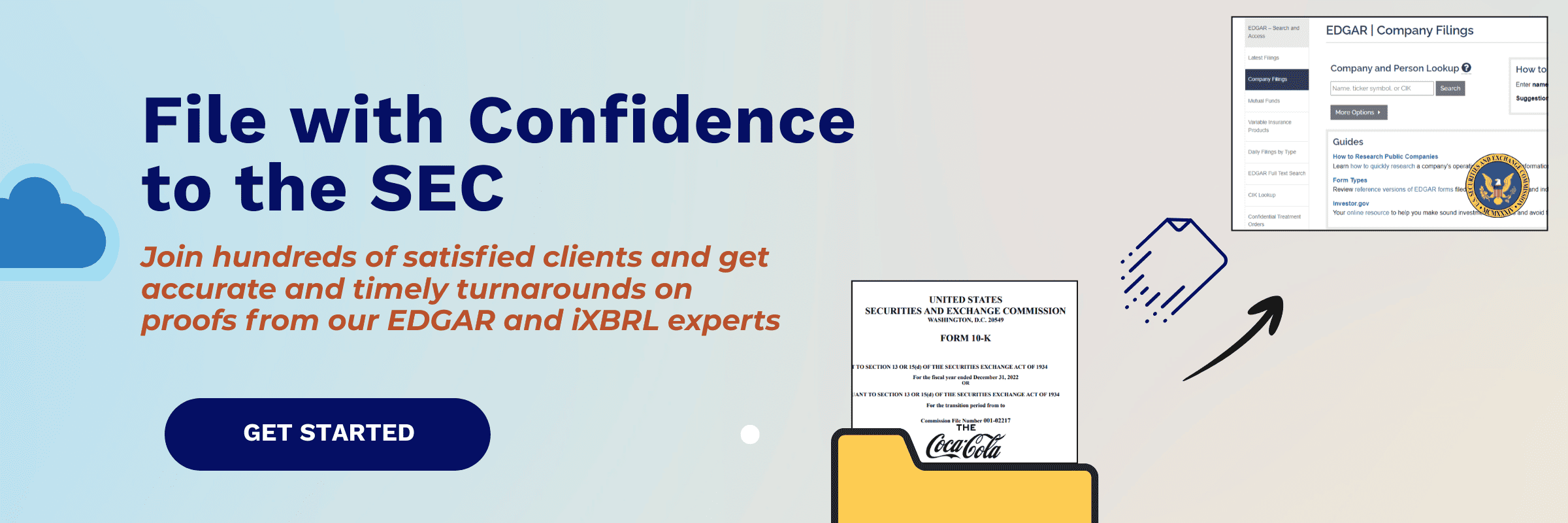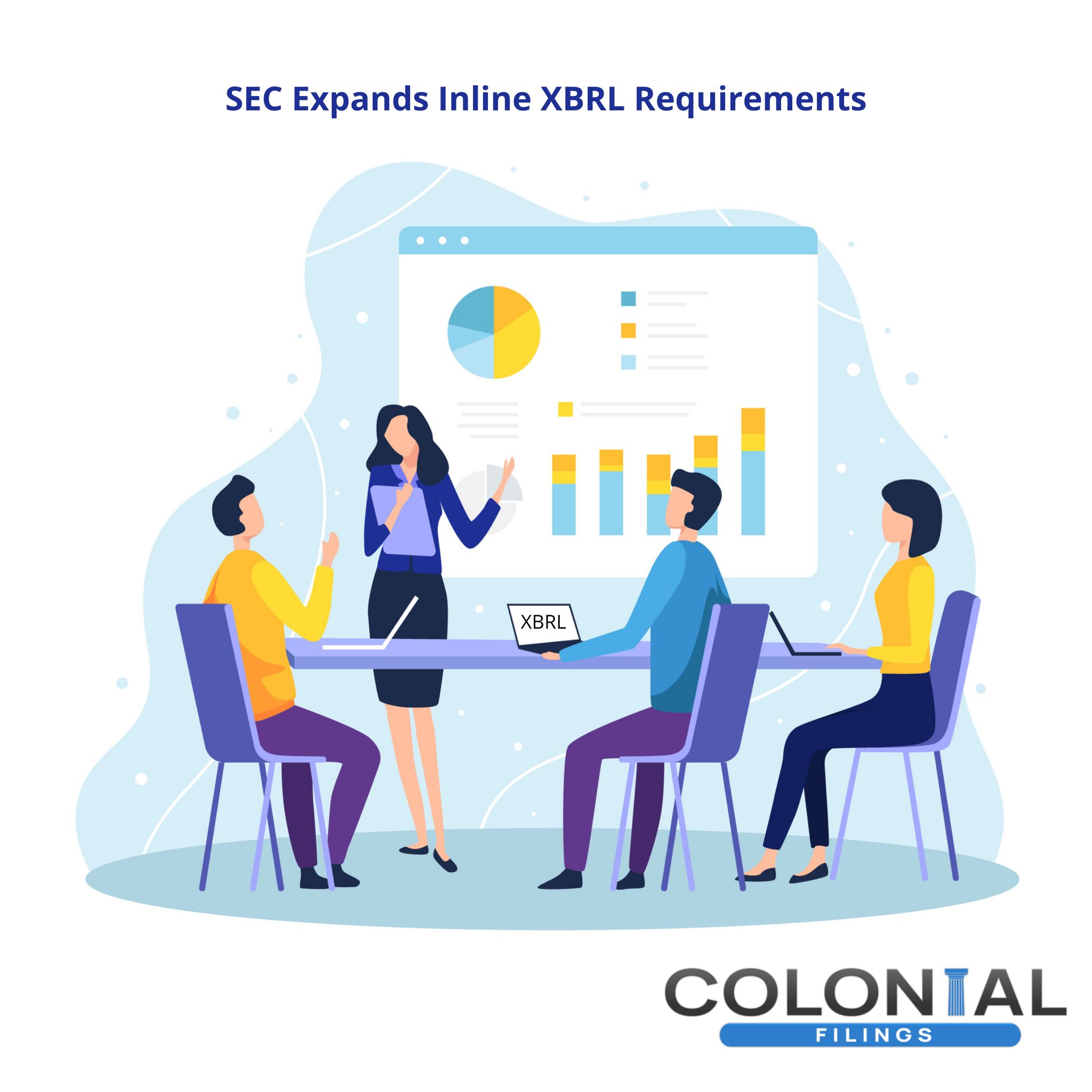On March 20, 2019, the Securities and Exchange Commission (SEC) published final rule amendments to the FAST Act, increasing the requirements and scope of the SEC’s new version of Inline XBRL (iXBRL) starting in July of 2019. Although there are many benefits in the amendments including measures for reduced disclosure, the additional iXBRL requirements will demand increased attention from both legal and finance departments, not only when filing routine annual and quarterly filings but also on the Form 8-K.
New XBRL Tagging Requirements
Documents requiring inline XBRL tagging include Forms 8-K, 10-Q, 10-K, 40-F and 20-F. In the past, each of these documents required tagging only in the financials in a separate XBRL file, but with the new amendments, inline tagging of cover pages and the financials will be required. This includes the cover page of the 8-K which will be a difficult change for the following reasons:
- Companies’ legal departments have traditionally prepared 8-Ks without oversight from finance departments. This will make it more time consuming, costly and difficult to add XBRL into these forms as they will require multiple teams to get involved.
- To date, the Form 8-K has not required XBRL in the cover page. The only XBRL requirements involved restated financial information. This will be a new process and require a learning curve for different departments.
The reasons above will most likely require legal personnel to learn XBRL. Most XBRL tagging is completed by an outside vendor such as Colonial Filings but legal teams will be required to understand its components to a limited degree, as it will be a requirement on new filings.
Timeline of Rule Changes
The Form 8-K tagging requirements is set to launch in June 2019 based on the fiscal year end for Large Accelerated filers and will be a phased-in for the remaining filers as follows:
| Operating Companies | Compliance Date |
| Large accelerated filers that use U.S. GAAP | Reports for fiscal periods ending on or after June 15, 2019 |
| Accelerated filers that use U.S. GAAP | Reports for fiscal periods ending on or after June 15, 2020 |
| All other filers | Reports for fiscal periods ending on or after June 15, 2021 |
SEC Increased Commitment on XBRL Tagging
SEC Commissioner, Robert Jackson, has committed to continue using structured data in new SEC filings including 8-Ks, proxy statements and more to provide increased transparency to the market. In addition to increased SEC use, investors and analysts are using XBRL more than ever and are enjoying the benefits of more accurate and reliable information. Due to these developments, is important for lawyers to know the importance and effect of structured data, its requirements and uses.
According to Elizabeth Gray, the former Assistant Director of Enforcement at the SEC and present senior litigation partner at Willkie Farr;
“Prior to the advent of big data, the client had the informational advantage but now, the SEC can observe a company’s public statements against the backdrop of all other public filings. From this vantage point, the SEC may have insight into issues that the client may not in good faith even be aware of.”
Due to this, she advises that the counsel should take time to focus on a client’s regulatory, disclosure and accounting practices. She also encourages that counsel should come to terms that clients may or may not be aware of the political issues or the SEC’s technology vulnerabilities.
To accommodate the new iXBRL requirements in the Form 8-K, legal and financial teams should define new processes and allow additional time for preparation and processing of filings.
Colonial Filings has been processing iXBRL filings since 2017 to ensure it is properly prepared for the new requirements. To obtain a quote, contact us.



